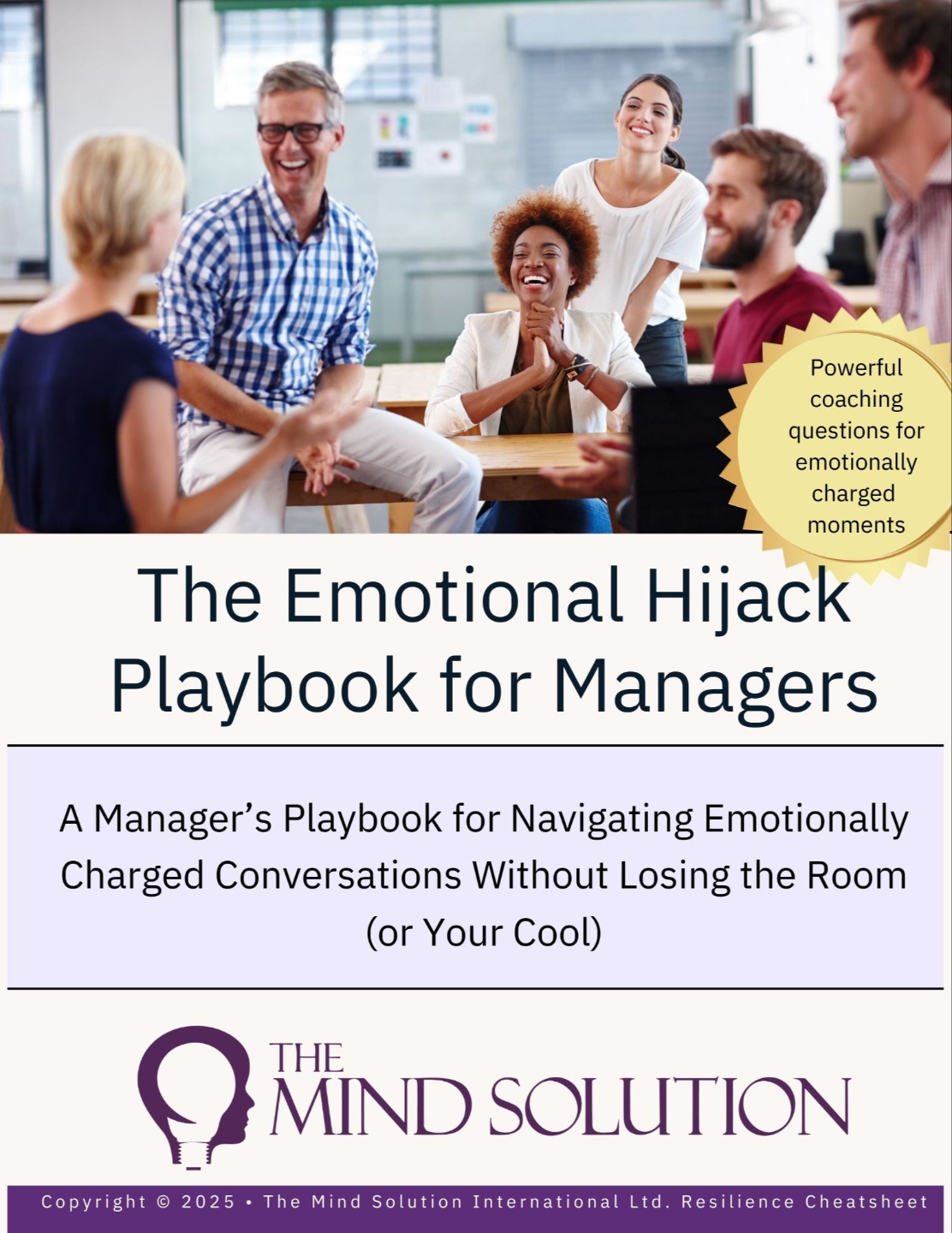How to Improve Mental Health Support at Work
Aug 06, 2025
Why Mental Health Help Comes Too Late at Work
And how your organisation can change that.
Many employees wait too long before seeking mental health support — often suffering in silence for years. In this article, we explore why that happens, how common approaches like CBT and EAPs can fall short, and what organisations can do to create a culture where employees feel safe to seek help sooner.
What Happens When Employees Don't Seek Mental Health Support?
From my experience of having worked as a therapist for more than a decade, what I’ve observed, sadly, is people waiting far too long before they seek professional help for their mental health and wellbeing.
I’ve witnessed professionals come to me after 30 years of struggling with anxiety and panic attacks. People who’ve done their best to keep it all together. People who’ve come to the assumption that this is just who I am. “I’m just an anxious person.” “I’m just a natural-born worrier.”
But months and years go by before they recognise that they just cannot sustain this state of mind. And what’s both beautiful to witness and heartbreaking is the shifts that can be made in just a couple of sessions.
Do Employees Struggle in Silence With Mental Health?
The stigma around getting professional help is still very real. For some people, it still feels like a last resort. Like it means they’ve failed. And especially in male-dominated industries or among older generations, there’s still an underlying shame.
And something that often comes up as a brilliant example in our mental health training for managers is this:
If you had a broken leg or a broken arm, you’d have no hesitation about getting help.
Yet when it comes to our minds, we see it differently.
However, the mind and body form a unified system. The mind influences the body. The body influences the mind. And just like we wouldn’t attempt to rewire our own house if we weren’t an electrician, we shouldn’t expect ourselves to rewire our own neural pathways without professional support, especially when those patterns are running the show 90% of the time.
What I often see is people thinking, “maybe it’ll get better,” or “I’ll just keep coping.”
But coping is not healing.
Why Don't Traditional Workplace Mental Health Services Work?
The services typically offered to employees, such as CBT or counselling through their EAP, often fail to deliver the results people need.
This is where I’ve seen the difference that working with the unconscious mind makes.
Because when we’re able to rewire thought patterns, process memories, trauma, and emotions at the unconscious level, we don’t have to keep retelling the story to heal.
And that’s something people often don’t know exists.
Unless someone’s made a conscious attempt to go out and learn about the mind, about trauma, about the nervous system, they won’t know what else is possible. We weren’t taught this at school. And that gap in knowledge creates assumptions.
Assumptions like:
“Anxiety is just something I have to live with.”
“Stress is normal. Maybe even good for me.”
But these aren’t truths. They’re unchallenged beliefs. And they’re beliefs that keep people stuck.
How Does Workplace Culture Influence Wellbeing in the Workplace?
This is where organisations can make such a difference, because knowledge is power.
The more people understand the human psyche, the more they understand what mental health is — the more we break down those walls of stigma.
Wellbeing webinars and mental health training aren’t just “nice to haves.” They create an opportunity for people to hear something they’ve never heard before.
It might be the first time someone realises, “Oh. Maybe I don’t have to live like this.”
And that moment can change everything.
What Role Should Managers Play in Supporting Employee Mental Health?
This is not about turning managers into therapists.
There’s no expectation that managers are here to fix anything.
But they can play a vital role in holding human conversations.
They can model vulnerability.
They can help someone take the first step by simply acknowledging what’s going on.
I’ve delivered mental health training to many organisations where, afterwards, a manager has contacted me directly to get help. Because until that point, their idea of mental health was just CBT or counselling. And in some cases, they’d already tried that, and it hadn’t worked.
But then they met me or my team.
People trained in modalities that work in a very different way.
And suddenly, there was light at the end of the tunnel.
What Are New Approaches to Employee Wellbeing and Trauma Support?
This is also why I developed our Treating Trauma the Easy Way programme.
It allows people to attend a group session where they don’t have to talk about anything. They don’t need to have their camera on. They don’t even need to say what they’re struggling with.
And yet the approach we take , working with the unconscious mind, means that we can support people to heal from fears, worries, insecurities, trauma, memories… all in a way that feels deeply psychologically safe.
This work meets people where they are — and gives them a way forward that doesn’t require them to retraumatise themselves through retelling.
How Can Organisations Encourage Early Mental Health Intervention?
The truth is, we can’t afford to wait.
We only need to look at the statistics to see the rising rates of mental health issues in the workplace.
But change doesn’t have to be complicated.
It starts with education. With normalising mental health. Helping people see that getting help isn’t a weakness, it’s an act of self-leadership.
I remember working with the Managing Director of Wood Mackenzie, a large oil and gas company in the UK. He’d had to take time out of the business due to stress and anxiety. And I invited him to use that as an opportunity to create change.
He did.
As part of launching their wellbeing strategy, he created a video sharing his own experience.
And the impact was profound.
People came up to him and said, “I’ve been through that too.”
When leaders go first, it creates safety for others to follow.
If you'd like to bring mental health awareness training into your organisation...
Whether you’re looking to equip your managers, reshape your culture, or offer something more effective than the usual EAP services — we’re here to help.
Contact us to find out more about how we can support your team — and change the story of mental health in your workplace.
The Emotional Hijack Playbook For Managers
A Manager’s Free Resource for Navigating Emotionally Charged Conversations Without Losing the Room (or Your Cool).
Perfect to use in your next one-to-one.







